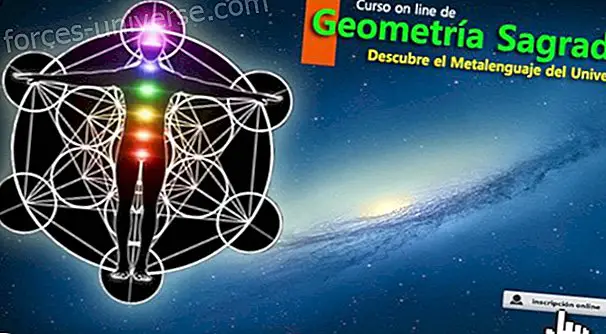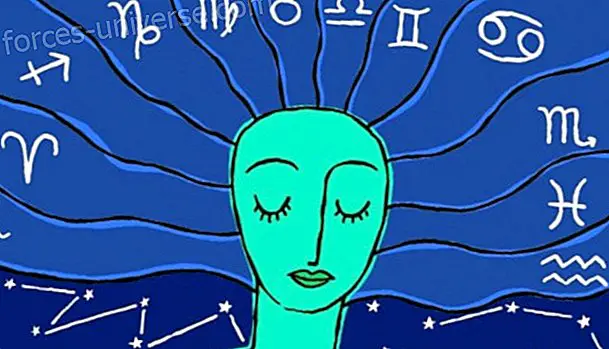
First part
Those who have read some of the articles in the series By the ways of God are already familiar with the issue of obstacles, but for those who have not yet done so, I share that obstacles are those behaviors, mainly promoted by beliefs, which they hinder us or prevent us from moving forward in our search for God or the ultimate spiritual realization of our belief.
As I see it, on all roads we are going to encounter obstacles, so it is important to know what its origin is and, above all, what we can do to overcome them. In this first part I will talk about doubt, distrust, laziness, vanity, perfectionism, pride, attachment, fear, desire and impatience.
THE DOUBT
The origin of the doubt is our belief in not being able to choose the right alternative to a variety of options that are presented to us and this belief is rooted in our personal insecurity, which in turn stems from a feeling of inferiority that we must overcome and which I will talk about how to do it later.
THE DISTRUST
When we get something from someone other than what we expect, distrust is generated, no matter if it is about human beings or God.
From my point of view, much of the distrust has its origin in the expectations we have about the behavior of others and we must be clear that other people are not always going to do what we expect of them, because on that they do not We have no control.
To the extent that we have less expectations or more realistic expectations, we will decrease the likelihood of distrust and if it arises, the impact of disappointment will be less. I know that it is natural to expect others to do what we would do instead, but we must accept that everyone has the right to make their own decisions and not what we would like them to take. In the case of God, we must be convinced that he will always give us what we need and that will not always be what we want and that everything we receive from him is by his grace and not by the merits we believe we have.

LAZINESS
In the Catholic religion, laziness is considered one of the deadly sins and is the only obstacle that, if presented, will prevent us or delay us in advancing on all roads.
I think that the origin of laziness could have two interpretations, one, born from the belief many times unknown to the lazy person himself, that nothing in this world is so valuable as to justify any effort . The other, the belief in his inability to do something helpful that will generate some benefit.
Both thoughts have their origin in two beliefs that we will see later. The first, in the superiority, to feel that your effort will always be more valuable than what you can get with it and the second in the inferiority, not believing yourself capable of obtaining something valuable with any activity you do.
THE VANITY
This is another of the sins considered capital by Catholics. The vain is convinced that his merits, true or not, place him above others, making him worthy of all his attention and his compliments.
To prevent vanity from appearing or to overcome it if it appears, we have to work on the belief of superiority that is its source.
PERFECTIONISM
This obstacle also has its origin in the belief of superiority, thinking that we are capable of reaching the unattainable. This belief leads his victim to never feel satisfied with what he achieves and the fruitless pursuit of perfection.
PRIDE
Here we find again superiority as a source of this obstacle. While it is true that in the common language the word pride has a positive use and meaning, when it expresses a feeling of satisfaction for one's own achievement or that of others, it is no less true that if behind that satisfaction the belief of be superior to others, then we are facing the dark side of this feeling .
The important thing is not the word itself, but the feeling behind it, satisfaction or superiority?
THE APEGO
This obstacle is so daily that most of us do not realize that it is there, especially in the West, where culture rather encourages it. In the East it is different, there their religions have an approach that promotes detachment.
The origin of attachment is the belief that life is meaningless without possessions . Me and mine are two of the most used words in our day to day. We feel owners of material things, feelings, ideas and even people . We find it difficult to conceive life without all those of mine .
To avoid or overcome the attachment we must make a deep reflection of what we really possess. In doing so, we will realize that we really do not own anything, that all the things we have are temporary, they are a loan while we are alive and that at some point they will no longer be there for us, either because it is they or we who are no longer there. .
At the end of our lives we will leave as we arrive, with nothing material of what we value so much in life.

THE FEAR
Fear is the last obstacle in the Paths of faith and service and although it seems absurd, the fear that may arise at the end of these paths seems to be a fear of what we have been looking for so much, a fear of our Deity or how it is He will react to our meeting.
If we look for its origin we will realize that its root is in ourselves, in our belief of not being worthy of knowing the purpose of our search and this in turn has its origin in the belief of being inferior, so we will see later inferiority as an obstacle in itself, which in turn generates other obstacles.
THE DESIRE
Desire arises from the need to get pleasure or to stop feeling pain. The desire presented as an obstacle is to feel sensory pleasure, so many think that the way to free ourselves from it is to deprive ourselves of pleasure, but they are wrong. There is nothing wrong with feeling pleasure, pleasure is not the obstacle to overcome, the obstacle to overcome is desire.
The root of desire is ignorance and the antidote to ignorance is wisdom, the wisdom of knowing things as they are.
If we reflect wisely, we will realize that desire is a creation of our mind in the quest to please the ego and that all sources of pleasure are finite in intensity and duration, none of them can give us infinite pleasure and forever. That is why desire makes us suffer. We suffer before and after pleasure. Before for the anxiety of not having the object of our desire and then for no longer having it.
The other reality that we should know about desire is that it usually manifests itself in the past or in the future . In the past, because we remember what we already enjoy and we want to feel it again, and in the future, because of the anxiety it generates for us, we have not yet enjoyed the pleasure we anticipate. When desire manifests itself in the present, it also causes us to suffer for the fear of losing our object of pleasure, which in turn prevents us from enjoying the pleasure we feel at that moment.
If we really understand these characteristics of desire as they are, it will disappear by itself. We will enjoy the pleasure when it is there and we will not yearn for it when it is not there.
IMPATIENCE
The origin of the impatience is the insecurity in our own capacities to achieve what we propose and this in turn is born from the feeling of inferiority that I will talk about in the next article.
In the second part of this article I will talk about the obstacles of the ego, confusion and feelings of superiority and inferiority. In addition, I will express my point of view on praise and contempt, which even though I do not mention them as obstacles in any of the articles, I consider them key factors in the beliefs of superiority and inferiority.

________
Author: Juan José Sequera, author of the Hermandadblanca.org family






